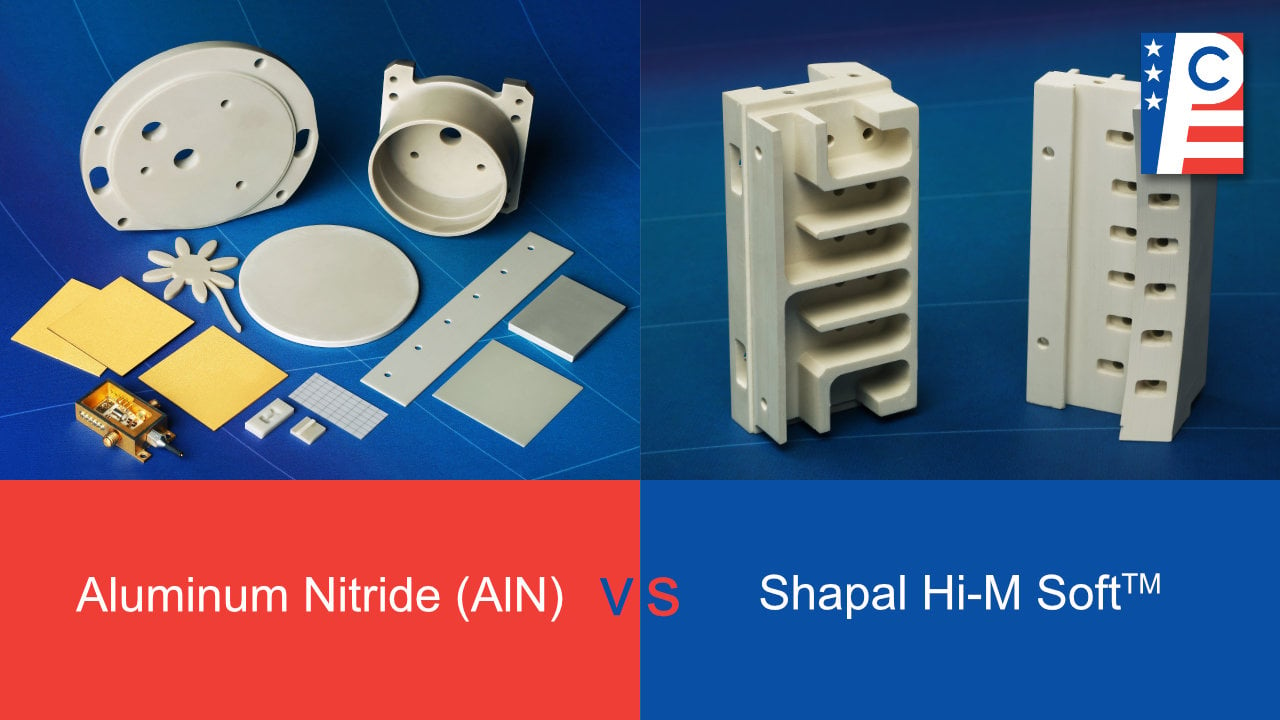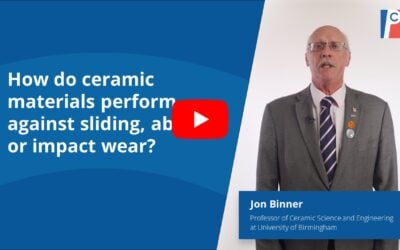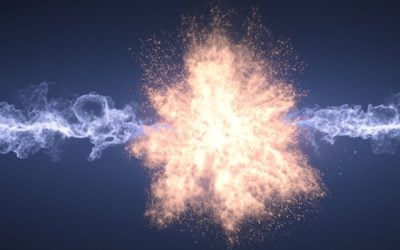Machinable AlN, with the trademark of Shapal Hi-M Soft, is the market leader, with a 30 year pedigree. This tends to be the go to material when you have reached the extremes of temperature, thermal shock, electrical insulation, while having the ability to be machined without diamond tools.
The increasing use of Aluminum Nitride (AlN) in power electronics, dissipating heat and providing electrical insulation has been an ongoing trend. The performance of Aluminum Nitride far outstrips Alumina in some critical areas. But the added cost of manufacturing AlN is a limiting factor.
The changeover from Alumina to AlN takes you from a material that is plentiful and one of the cheapest technical ceramics available, to a relative newcomer, requiring specialist furnacing in a nitrogen atmosphere and limited specialist manufacturers. While the move from one material to the other is a major step change with significant benefits, it can carry significant cost increases and longer lead times.
The move to AlN can be mitigated by using an intermediate step, a machinable Aluminum Nitride. This can help considerably when developing a structural piece of material that cannot be produced from available ceramic substrates, but requires a larger piece of material that would otherwise have to be made from compacted powder and sintered.
Machinable AlN is a hot pressed material, produced in billet form, easily machinable and readily available. This allows a way of quickly prototyping small quantities of components without waiting months for minimum order quantities of parts.
Pure Aluminum Nitride is mechanically stronger, harder, and has higher thermal conductivity. The downside often being the lead time and the cost of diamond grinding, which can be considerable.
The transition from Alumina to a higher performing thermal material such as AlN can require tooling and long lead times. Shapal Hi-M Soft can provide the bridge, where small quantities of prototypes can be rapidly produced, trialed, and evaluated, modified in the design phase if required, and then retested, without having to place significant orders, pay for tooling, and wait for months.
The ability to rapidly make machinable Aluminum Nitride components shortens time to market and allows a fully functioning product to be tested. Many products have been developed this way and a considerable number have stayed with Shapal Hi-M Soft and not made the transition to AlN.
Aluminum Nitride Properties
This following property tables show the key benefits of Aluminum Nitride (AlN) vs Machinable Aluminum Nitride (Shapal Hi-M Soft).
General Properties
| Property | Unit | Aluminum Nitride | Shapal |
|---|---|---|---|
| Density | g/cm3 | 3.31 | 2.88 |
Electrical Properties
| Property | Unit | Aluminum Nitride | Shapal |
|---|---|---|---|
| Volume Resistivity @ 25℃ | Ωcm | 1.0 x 1013 | 1.0 x 1015 |
| Volume Resistivity @ 500℃ | Ωcm | 3.2 x 107 | 3.2 x 1010 |
| Dielectric Strength | kV/mm | 15 | 65 |
Thermal Properties
| Property | Unit | Aluminum Nitride | Shapal |
|---|---|---|---|
| CTE @ 300℃ | /℃ | 4.6 x 106 | – |
| CTE @ 400℃ | /℃ | – | 4.8 x 10-6 |
| CTE @ 500℃ | /℃ | 5.2 x 106 | – |
| CTE @ 600℃ | /℃ | – | 4.9 x 10-6 |
| CTE @ 800℃ | /℃ | – | 5.0 x 10-6 |
| CTE @ 1000℃ | /℃ | 5.6 x 106 | – |
| Thermal Conductivity | W/mK | 180 | 92 |
| Max Use Temp in Air | ℃ | 1000 | 1000 |
| Max Use Temp in Non-Oxidizing Atmosphere |
℃ | 1900 | 1900 |
* Coefficient of Thermal Expansion (CTE) describes how the size of an object changes with a change in temperature.
Mechanical Properties
| Property | Unit | Aluminum Nitride | Shapal |
|---|---|---|---|
| Bending Strength @ 25℃ | MPa | 335 | 300 |
| Compressive Strength @ 25℃ | kg/mm2 | 2100 | 100 |
| Vickers Hardness (Hv) @ 25℃, 300g | kg/mm2 | 1100 | 380 |
Related Materials
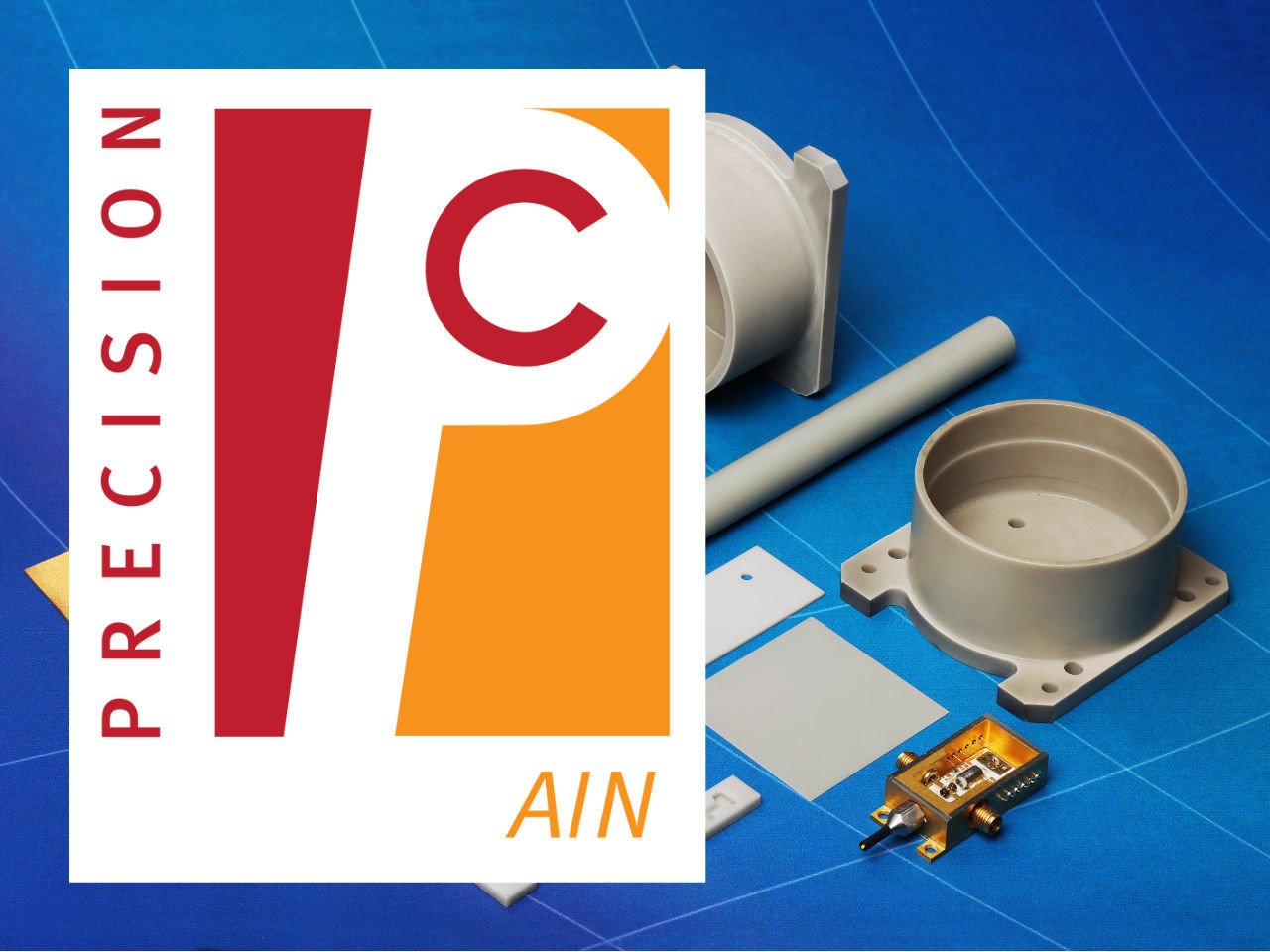
Aluminum Nitride
CeramAlum™
Aluminum Nitride (AlN) is an excellent material to use if high thermal conductivity and electrical insulation properties are required -- an ideal material for use in thermal management and electrical applications.
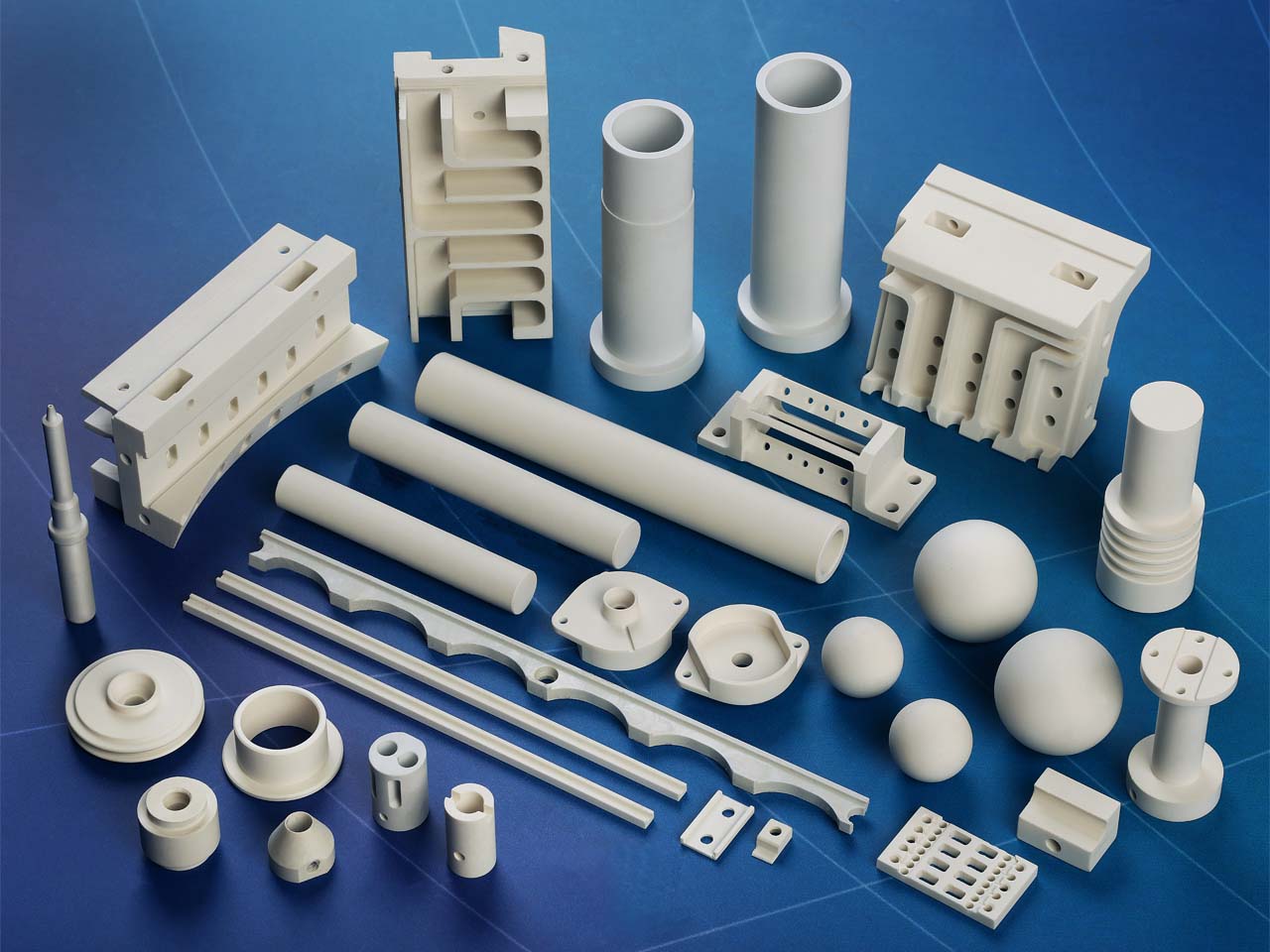
Shapal Hi M Soft™
Machinable AlN
Shapal Hi M Soft is a hybrid type of machinable Aluminum Nitride (AlN) ceramic that offers high mechanical strength, electrical insulation, and thermal conductivity.

